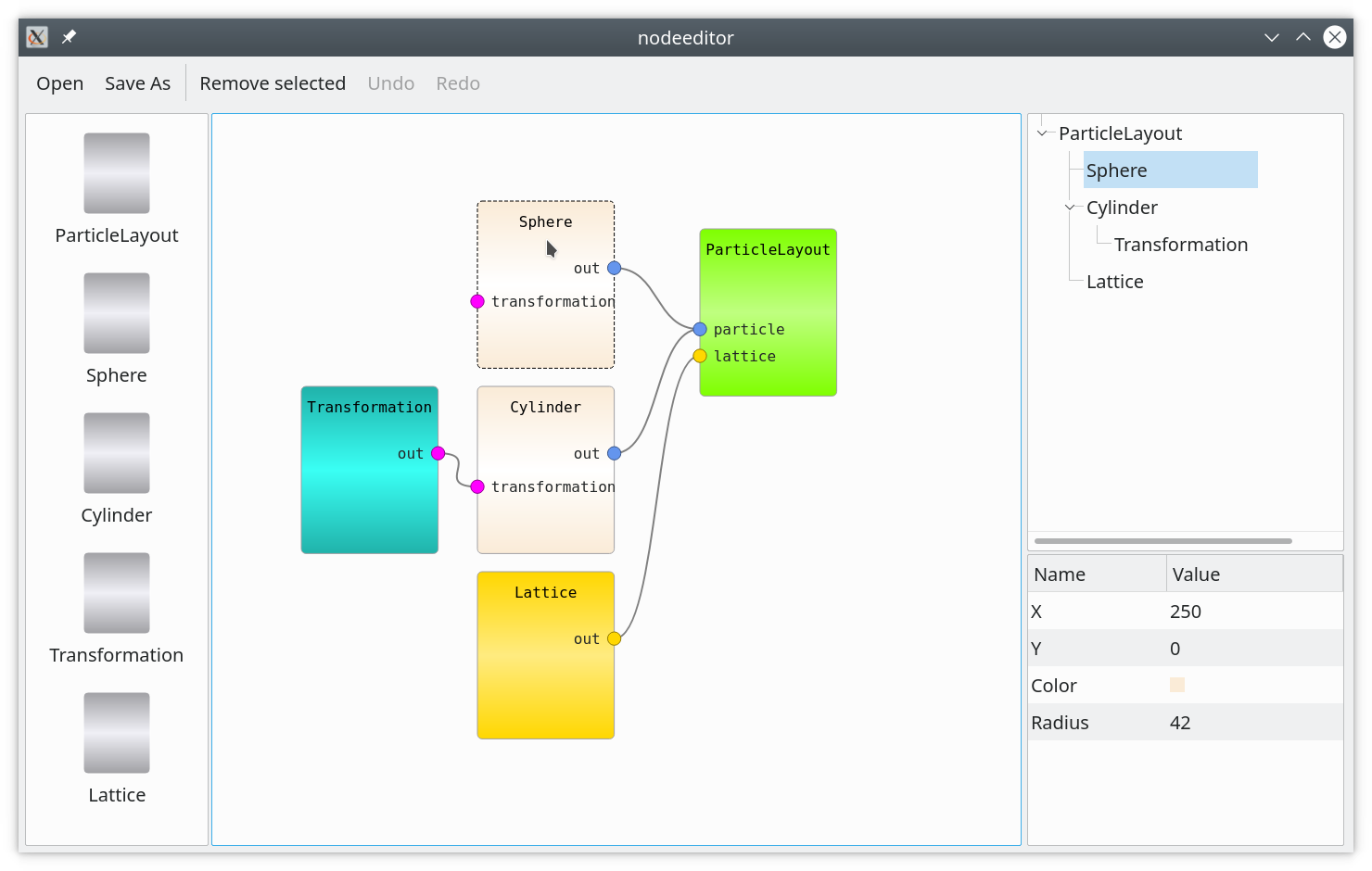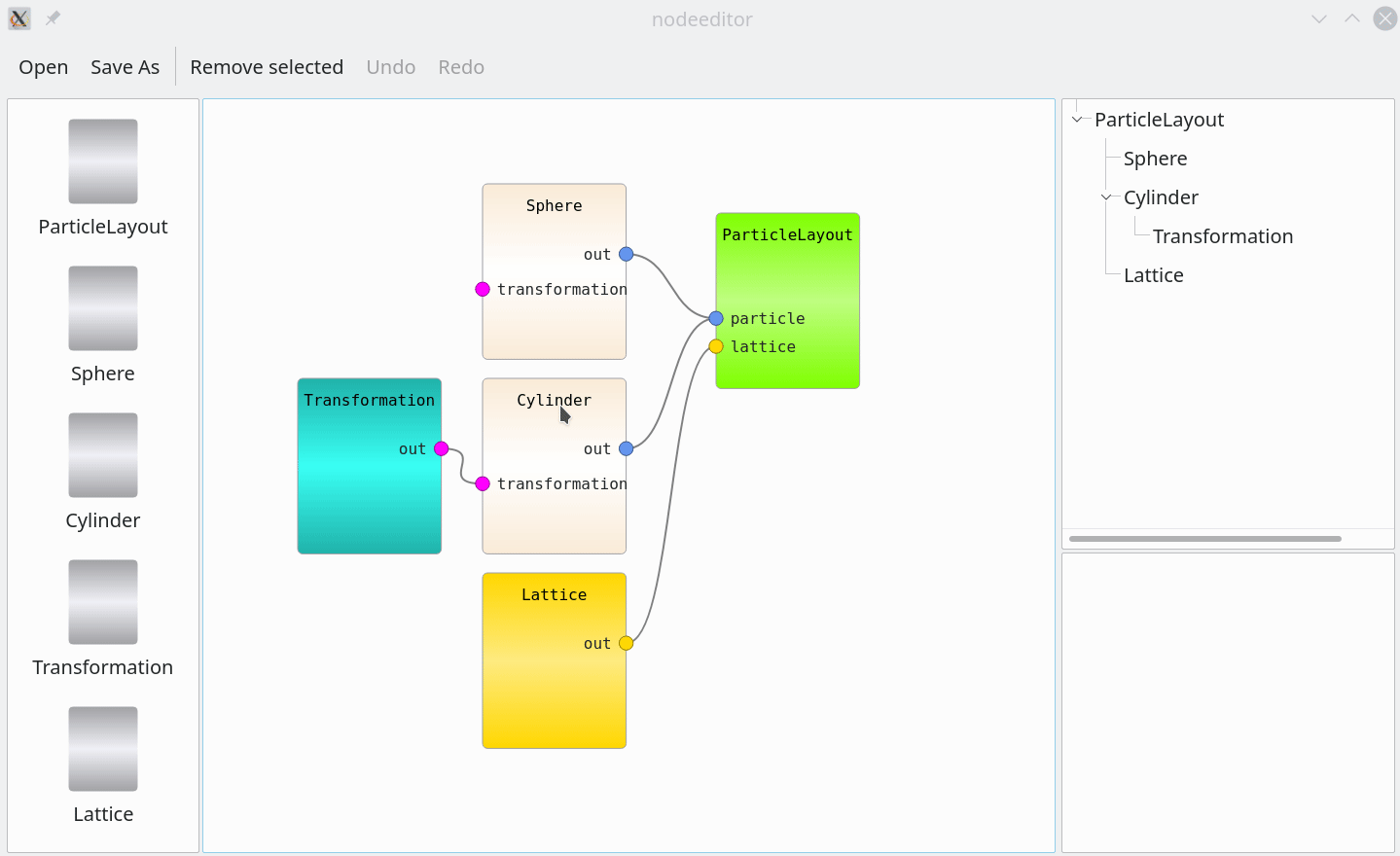The example shows a node editor similar to those we can find in LabView, Blender, Maya, and other applications. It allows organizing complex settings in the form of a dependency graph, displaying nodes and the connections between their attributes.
Node editor: original code is taken from http://algoholic.eu/qnodeseditor-qt-nodesports-based-data-processing-flow-editor/ Copyright (c) 2012, STANISLAW ADASZEWSKI.
The example from the link was adapted for qt-mvvm library. The resulting
application provides a data model, various view models (e.g. node editor,
property editor, hierarchy view), serialization, and undo/redo.
In this particular example, the node editor is used to set up ParticleLayout
for further simulation of neutron scattering from some nano-particle arrangement.
The layout carries information about particles populating a crystal lattice.
The ParticleLayout can have an arbitrary amount of particles attached, but
only one single lattice. Particles can be rotated with the help of the
Transformation object. There can be many layouts on the scene.
- The list view on the left. Items from the list can be drag-and-dropped on the scene.
- Node editor. Ports of the same color can be connected together.
- Tree view present same model as node editor in the form of object hierarchy.
- Property editor shows all properties of currently selected node.
The ConnectableItem is a base class for all items representing nodes. Doesn't
contain presentation-related details (color, shape parameters, etc). Serves as a building block for SampleModel. The
ConnectableView is a counterpart of ConnectableItem on the graphics scene.
The ConnectableItemController provides updates of the ConnectableView's position/appearance on
the graphics scene when the underlying ConnectableItem changes. Similarly, it provides an update of
the item's properties while the view is moved on the scene by the user.
This is the part which came originally from Node Editor by STANISLAW ADASZEWSKI. Contains machinery to establish elastic connections between ports.
The GraphicsSceneController listens to the original SampleModel
and updates the scene on model change. When an item is removed from the model, the corresponding view will be removed too. When an item is added to the model,
a new view will be added to the scene.
When the elastic connection is established between two nodes, this triggers a parent change request to the SampleModel.
This, in turn, leads to the update on the graphics scene. Views will be created and connected with elastic connections
to represent new parent/child relationships in the underlying model.

